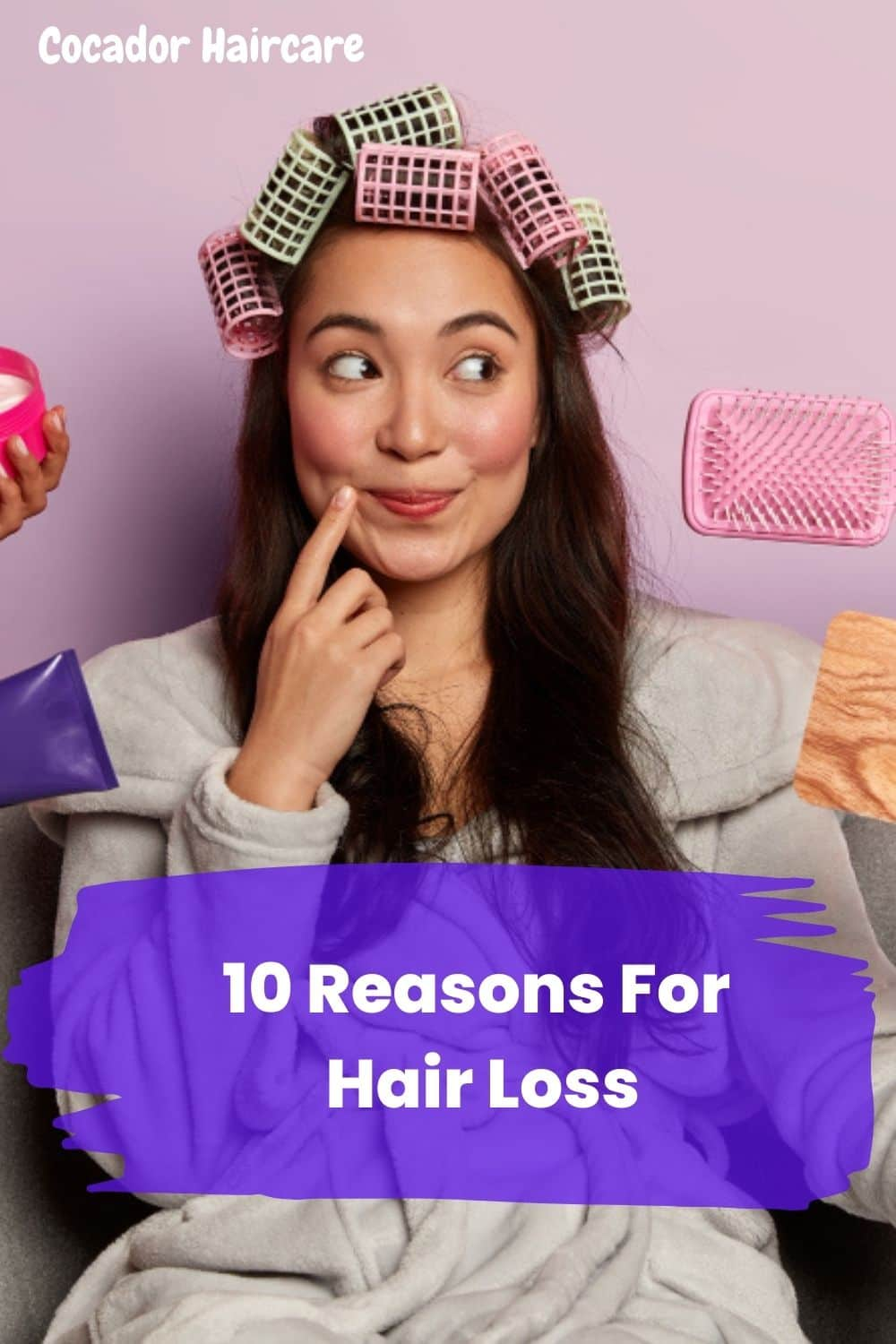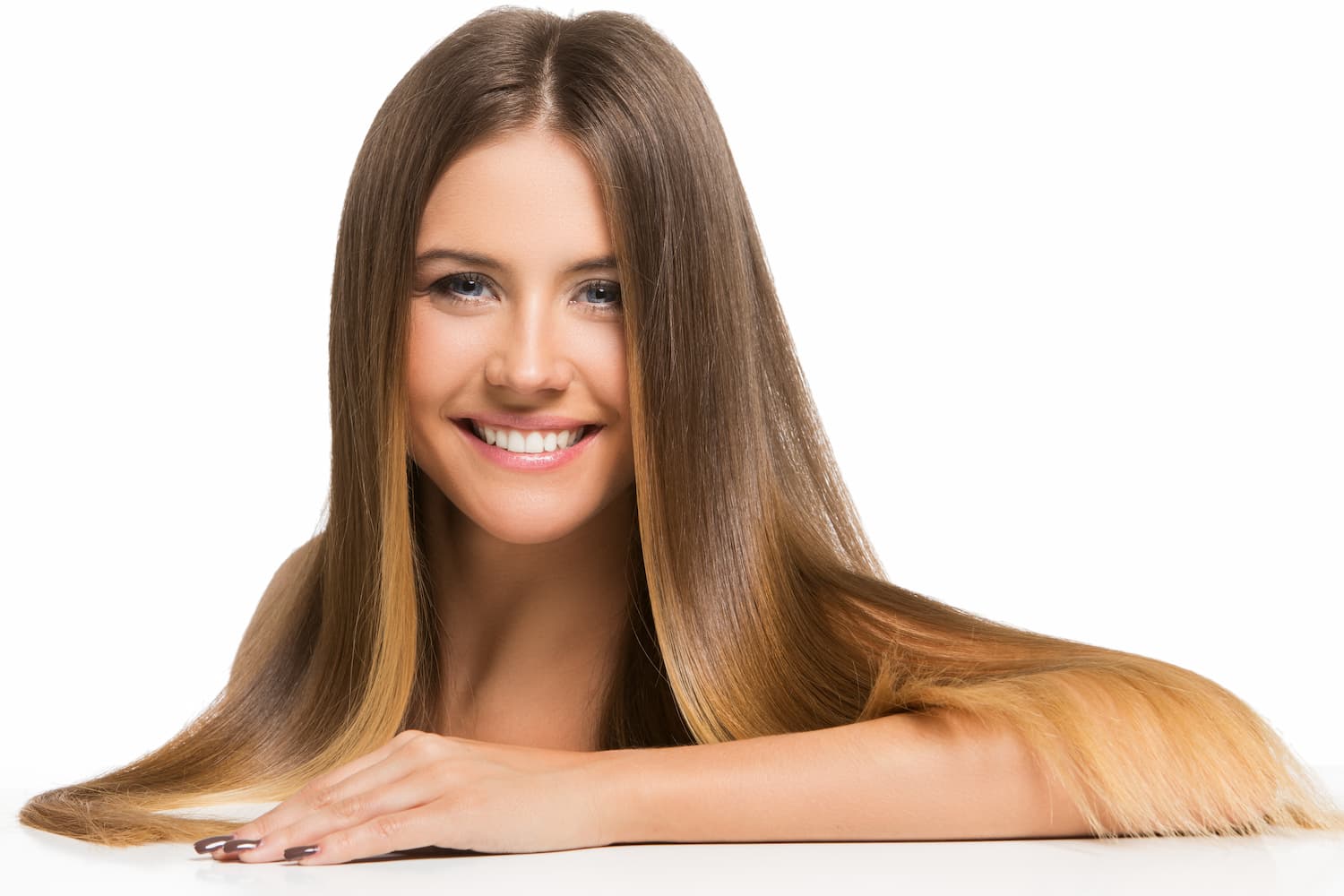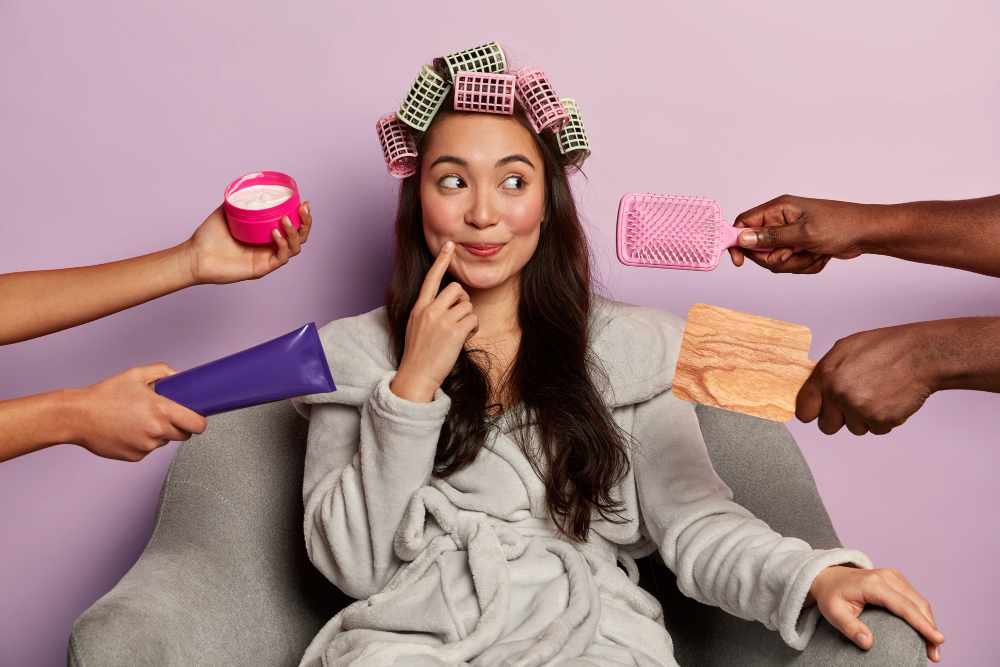Hair loss – including baldness and noticeably thin hair – can result from a variety of factors. In some cases, hair loss is a side effect of a health problem, which will resolve itself once the health problem is well managed. There are lots of reasons from pregnancy, stress, deficiency of vitamin A, vitamin B and protein. We’ll present all reasons and how to deal with them. The first step towards preventing hair loss or regenerating new hair is to consult a dermatologist if you’re dealing with thinning hair or baldness. Take a look at the most common causes of hair loss before you make an appointment.
Hair Loss Causes
Depending on what is causing it, there are many distinct ways that hair loss can manifest. It can affect only your scalp or the entire body, and it can start off abruptly or progressively.
Hair loss symptoms and signs might include:
Stress
High levels of stress have been linked to three different forms of hair loss:
- Significant stress causes a substantial number of hair follicles to enter the resting phase in telogen effluvium. Affected hairs may start to come out abruptly after a few months of simple brushing or washing.
- The compulsive drive to remove hair from your scalp, brows, or other parts of your body is known as trichotillomania. Hair pulling can be a coping mechanism for unpleasant or negative emotions like stress, anxiety, loneliness, boredom, or irritation.
- Alopecia areata is thought to be brought on by a number of reasons, including perhaps extreme stress. The immune system of the body destroys the hair follicles in alopecia areata, leading to hair loss.

Pregnancy
Hair loss can result from other hormonal abnormalities as well, particularly the dramatically shifting hormone levels that follow pregnancy and childbirth. During pregnancy, estrogen levels soar, which may temporarily change the cycles of hair growth. You’ll probably have less hair loss than usual during this period.
After giving birth, your estrogen levels may return to normal, which could cause more hair loss than usual. Additionally, it’s not unusual for postpartum mothers to observe bald spots or hair thinning. Most Swiss dermatologists agree that postpartum hair loss can start one to six months after childbirth and extend up to 18 months, depending on the individual.
Your hair follicles will recuperate along with the rest of your body. Your hair will grow back after the temporary hair loss. Even while postpartum hair loss isn’t entirely avoidable, you can lessen the issue by being gentle with your hair and utilizing your vitamin supplements as directed.
We recommend one of the latest articles to check hair care in the winter…
Vitamin A Deficiency
Vitamin deficiencies can result in hair loss (e.g., vitamins D & B7, biotin). However, according to the majority of Western dermatologists, taking too much vitamin A-containing supplements or drugs can also result in hair loss.
For adults and children above the age of four, 5,000 international units of vitamin A per day are advised. A supplement may have between 2,500 and 10,000 IU. Any more than that, therefore, runs the danger of some strands coming undone.
The good news is that taking too much vitamin A can also lead to hair loss. When the overproduction of vitamin A is stopped, hair should begin to grow properly once more.
Protein Deficiency
Given that hair loss remedies for men and women are currently all the rage, having healthy hair is a key priority for the majority of individuals. Since the stages of male pattern baldness are frequently distressing to endure, it is just as crucial as caring for your overall well being. The growing phase and the resting phase are the two distinct phases of the hair. If you are unable to get enough protein, your body will adjust to the deficiency, which will result in hair loss. Your hair will enter the resting period rather than growing, and it will start to either thin out or reduce. Therefore, consuming protein is essential for it to thrive.
Malnutrition or a poor diet are two prominent and frequent causes of protein insufficiency.
Hormones
For both men and women, hormones are the main factor in hair loss. Dihydrotestosterone (also known as “DHT”), a hormone that your body makes as a consequence of testosterone, is the specific hormone that causes hair loss in both sexes.
Men and women both require testosterone. The body of a man contains a lot of testosterone and only a little bit of estrogen. This ratio is inverted in females, who have higher levels of the female hormones progesterone and estrogen and less testosterone.
In contrast to men, women experience hormonal hair loss with distinct outcomes. Women with hormonal hair loss typically observe a diffuse thinning pattern throughout the entire scalp rather than the horseshoe-like hair pattern or receding hairline typical in men.
In layman’s terms, if you’re prone to female-pattern hair loss, you presumably won’t acquire a short hairstyle, but your hair might get considerably thinner.
Vitamin B Deficiency
The eight various sorts of water-soluble vitamin compounds found in the vitamin B complex all support cell metabolism. Thiamine (vitamin B1), riboflavin (vitamin B2), niacin (vitamin B3), pantothenic acid (vitamin B5), biotin (vitamin B7), folate (found in leafy greens), and vitamin B12 are among these eight vitamins.
Only riboflavin, biotin, folate, and vitamin B12 deficiency have been linked to hair loss out of those eight, although there have only been a few studies and even those don’t always support this association.
For instance, one study found no appreciable difference between controls and patients with diffuse hair loss in terms of serum folate levels.
Similar to folate, vitamin B12 contributes to the synthesis of nucleic acids, which may promote the growth of hair follicles. However, Norwegian studies discovered that the decline in vitamin B12 levels. And they had no negative impact on hair shedding or hair growth in a research analyzing people with vitamin B12 insufficiency.
Though several vitamin B compounds and hair loss/growth have not been found to be significantly correlated, biotin is a little different. Although rare, biotin deficiency can in fact result in baldness. However, no significant clinical studies have demonstrated that ingesting biotin supplements will promote hair regrowth.
Lupus
Sadly, sure. Widespread inflammation brought on by lupus frequently impacts your skin, especially on your face and scalp. The hair on your scalp may progressively thin away as a result of lupus, though other people have hair loss in clumps. It’s also possible to lose body hair, beard hair, eyelashes, and brow hair.
When your lupus is treated, your hair will often grow back. However, some lupus patients experience spherical (discoid) lesions on the scalp. These discoid lesions do result in permanent hair loss because they damage your hair follicles.
Lupus can also make the scalp hair along your hairline brittle and prone to breaking off, giving you lupus hair, which gives you a ragged appearance.
Prior to a diagnosis of lupus, hair loss may be a warning indication. However, a variety of different medical conditions can result in hair loss, so if you have unexpected hair thinning or loss, speak with your doctor.
Extreme Weight Loss
Hair loss is one of the negative effects of weight loss that can occur in some people.
Your body is vulnerable to stress, hormonal shifts, and vitamin deficits. Furthermore all of them have potential to bring on by rapid weight loss, dietary restrictions, or weight loss surgery.
Nutrient shortages and other side effects of abrupt and rapid weight loss might also contribute to hair loss during weight loss.
For instance, acute telogen effluvium (TE), one of the most prevalent causes of extensive hair loss on the scalp.
TE often starts approximately 3 months after a trigger, like a sudden loss of weight, and lasts for about 6 months.
Other types of hair loss are also to weight reduction and vitamin shortages brought on by restrictive diets. These include androgenic alopecia, sometimes referred to as male or female pattern baldness, and chronic TE, which persists for more than six months.
Polycystic Ovary Syndrome
Androgens, or male hormones, which female body’s creation. Among them is testosterone. Androgens play a part in initiating puberty and promoting pubic and underarm hair development. They also serve other crucial roles.
Virilization is a result of increased androgen production brought on by PCOS. This describes the emergence of more male traits, such as extra hair in areas of the face, neck, chest, and belly where it doesn’t typically grow.
The hair on your head may begin to thin as a result of these excess androgens, especially close to the front of your scalp. This is also referred to as female pattern hair loss or androgenic alopecia.
As members of the Cocador family, we are delighted to contribute content that will enrich your life, from hair care to knitting instruction. Cocador can help you find these and other lovely and valuable content. You can assist your loved ones in reaching the Cocador by sharing the items you find interesting.







